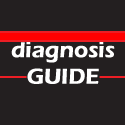By Dr. Alexander Strasser
(May 13, 2005) — Physicians used to be in charge of patient care. Now insurance companies are practicing medicine and dictating to health care providers how medical practice should be conducted. Instead of being a patient-oriented clinical art and science, medicine has become an algorithm of care controlled by the insurance industry for the main purpose of lowering costs. Lip service is given to quality and preventive medicine, but the emphasis is on cost savings.
How did this happen? Does the public benefit from insurance company control of medicine? Who profits from this arrangement?
As health care costs began to rise, companies that pay health care benefits looked to the insurance industry to control costs. To do this, insurance companies hired physicians as full-time employees (medical directors). Initially the influence of insurance companies was small, but as more patients had their medical costs covered, insurers gained the upper hand.
Under the guise of promoting good health, they set up elaborate algorithms of care. In time, these became the accepted mode of practice. Extensive and costly infrastructure was established, and health maintenance organizations were spawned. The public message was that insurance companies strived for improved medical care, while the real intent was cost control.
Cost effectiveness was rewarded and the reverse was also true. Free-thinking and innovative diagnostic and medical therapy were discouraged. "Take the safe and cheaper way" is the message.
One very effective way for insurance companies to control physicians was through extensive documentation requirements. Keep the physician busy with paperwork so that he or she will not have time to fight back. This policy has worked. Using preventive medicine as their battle cry, insurance companies demand an ever-growing list of documentation.
In Massachusetts, under the guise of improving mental health care for Medicaid patients, elaborate algorithms of drug therapy for depression were established. Drug treatment of depression is an individual matter, and algorithms of medical care simply are inappropriate.
Medical schools used to teach the discipline of taking a detailed medical history. But in these algorithms, insufficient time is left to the physician for listening.
Initially the concept of quick turnover of patients from a high-cost hospital to a lower-cost (nursing home) level of care might save money. However, this is impossible unless quality is sacrificed. Patients should not be discharged from the hospital until all appropriate diagnostic and treatment steps have been completed.
And, despite all these efforts, health care costs continue to climb as our population ages and health expectations rise. Unless we are willing to ration medical care, costs cannot be controlled.
Eventually our society must decide how much medical care each individual will have paid for. Does the public have the right to unlimited medical care? Enough money for unlimited medical care will never exist. If the public wants unlimited health care, it will have to be paid for in some way. This would mean higher taxes in a government system or higher insurance premiums and out-of-pocket expenses in a private system. A free ride as promised by the insurance industry does not exist.
Health Insurance Industry and patient care
Subscribe to:
Post Comments (Atom)
Search
Categories
- Assurance (2)
- Auto (16)
- Auto Insurance (9)
- Auto Insurance Companies (5)
- Auto Insurance Quotes (4)
- Automobile Insurance (2)
- bush (1)
- Business Insurance (2)
- Car Insurance Quotes (2)
- Cheap Auto Insurance (1)
- COBRA Insurance (1)
- cover (1)
- Flood Insurance (2)
- General Loan Information (1)
- george (1)
- george bush (1)
- Guides And Tips (18)
- Health Insurance (6)
- Health Insurance Quotes (1)
- Homeowner Insurance (1)
- insurance (15)
- Insurance Informations (1)
- insurance news (9)
- Insurance Provider (1)
- Insurance Rates (1)
- Insurance Tips (7)
- lemon law (3)
- life insurance (1)
- Life Insurance Quotes (1)
- Medical Insurance (2)
- money (1)
- Mortgage Insurance (1)
- online (1)
- Online Insurance (1)
- points (1)
- safety (2)
- Sedan (1)
- steps (1)
- Travel Insurance (2)
- Vehicle (2)
- vehicle cover (1)
- vehicle cover premiums (1)
- Whole Life Insurance (1)





0 comments:
Post a Comment